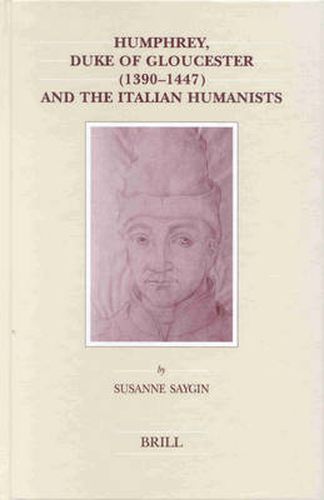Readings Newsletter
Become a Readings Member to make your shopping experience even easier.
Sign in or sign up for free!
You’re not far away from qualifying for FREE standard shipping within Australia
You’ve qualified for FREE standard shipping within Australia
The cart is loading…






Humphrey, Duke of Gloucester (1390-1447) was the most important patron of Italian Renaissance humanism in England during the fifteenth century. This study reconstructs the network of patronage between Gloucester, his Italian middlemen, and several Italian humanists. Analysing their motives for establishing contacts with each other, it considers the literary interests of these men within the political and social context and argues that the early transmission of humanism to England was closely linked with the promotion of political, dynastic and socio-economic interests. This integrative approach highlights the dynamic interrelation between the intellectual and the political sphere; it shows Gloucester and the men in his circle as active proponents of their interests and explains the appeal Renaissance humanism held for such exponents of the vita activa in Italy and beyond.
$9.00 standard shipping within Australia
FREE standard shipping within Australia for orders over $100.00
Express & International shipping calculated at checkout
Humphrey, Duke of Gloucester (1390-1447) was the most important patron of Italian Renaissance humanism in England during the fifteenth century. This study reconstructs the network of patronage between Gloucester, his Italian middlemen, and several Italian humanists. Analysing their motives for establishing contacts with each other, it considers the literary interests of these men within the political and social context and argues that the early transmission of humanism to England was closely linked with the promotion of political, dynastic and socio-economic interests. This integrative approach highlights the dynamic interrelation between the intellectual and the political sphere; it shows Gloucester and the men in his circle as active proponents of their interests and explains the appeal Renaissance humanism held for such exponents of the vita activa in Italy and beyond.